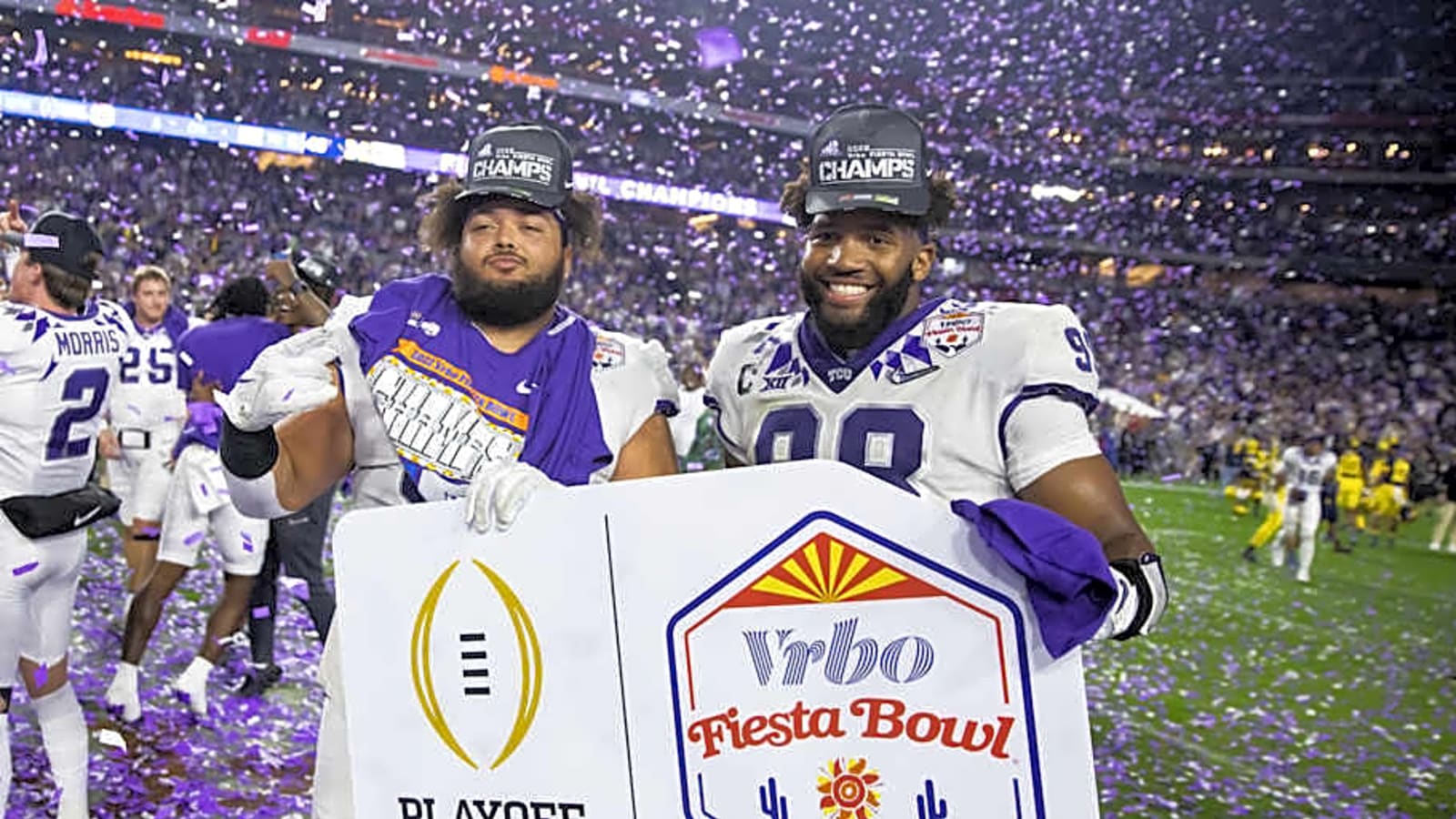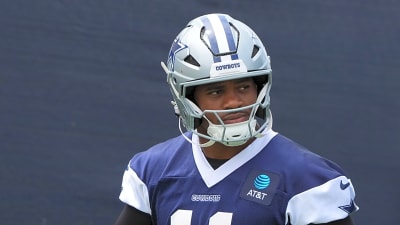
A constant theme this week has been the history of North Carolina’s program and how underappreciated it has been until Bill Belichick’s arrival.
Another program whose history is under-appreciated is TCU. While the Horned Frogs may not carry the historical prestige of programs like Clemson or Florida State, they have been one of the nation’s most consistent winners over the past quarter-century.
Since 2000, TCU has compiled a 220-95 record, won seven conference championships — including titles in the WAC, Conference USA, Mountain West (four), and Big 12 — and appeared in four BCS/New Year’s Six bowls. The program also reached the national title game in 2022 and has posted ten 11-win seasons, compared to just one for North Carolina in that span.
TCU is also among a select group of programs to have appeared in the Cotton, Fiesta, Orange, Peach, Rose and Sugar Bowls.
When They’re Hot, They’re Hot
While TCU has been recognized for its recent success, the Horned Frogs were already a powerhouse in Texas football for nearly four decades, beginning in the Roaring Twenties and continuing through the early 1960s.
During that stretch, TCU posted a 254-142-31 record, captured nine conference championships and claimed national titles in 1935 and 1938. The Horned Frogs also made 12 bowl appearances at a time when postseason opportunities were rare, including multiple trips to the Cotton, Orange and Sugar Bowls.
TCU endured nearly four decades of dormancy before Dennis Franchione revived the program in 1998, guiding the Horned Frogs to their first bowl victory since 1956. The resurgence accelerated under Gary Patterson, who built TCU into a national contender. During his tenure, Patterson compiled a 181-79 record, captured six conference championships, reached three BCS/New Year’s Six bowl games and delivered 11 Top 25 finishes — including six in the top 10.
In Sonny Dykes’ first year on the job in 2022, he led the Horned Frogs to the College Football Playoff, which included a win over Michigan in the Fiesta Bowl to advance to the national championship game.
Three Horned Frogs are in Canton
Believe it or not, TCU has produced three players who were the best of the best at what they did: Sammy Baugh, Bob Lilly and LaDainian Tomlinson.
Widely regarded as the first superstar quarterback in the NFL, “Slingin’ Sammy” revolutionized the forward pass during his 16-year NFL career with the Washington Redskins (now Commanders) from 1937 to 1952.
A two-time NFL champion and six-time first-team All-Pro, Baugh also starred as a defensive back and punter. In 1943, he led the league in passing, punting, and interceptions—an unmatched feat. Baugh was inducted into the Pro Football Hall of Fame in its inaugural class of 1963.
Known as “Mr. Cowboy,” Lilly was an 11-time Pro Bowler and a 7-time First-Team All-Pro and helped define the Cowboys’ “Doomsday Defense.” Before he helped lead the Cowboys to a victory in Super Bowl VI, Lilly was a two-time All-Southwestern Conference selection and was an unanimous All-American in 1960.
Sometimes, you have to save the best for last — and that is LaDainian Tomlinson, the former NFL MVP and standout running back for the San Diego Chargers. Before dominating the NFL, Tomlinson was shredding defenses in college, rushing for 2,158 yards and 22 touchdowns in his final season at TCU.
Tomlinson's most memorable performance came Nov. 20, 199, when he set an NCAA Division I record for most rushing yards in a single game, carrying the ball 43 times for 406 yards and six touchdowns in a 52-24 victory over UTEP. He did numbers on the Miners the following year on Senior Day, running for 305 yards and three touchdowns in the 47–14 victory in his last game at Amon G. Carter Stadium.
Tomlinson is still TCU’s all-time leader in rushing yards (5,263) and touchdowns (54).
They Have a Heisman Trophy Winner
TCU has a Heisman Trophy winner whose name should be familiar to any avid college football fan: Davey O’Brien. The award for the nation’s top quarterback bears his name, and for good reason—O’Brien was an outstanding player in his own right.
He won the Heisman in 1938 after leading the Horned Frogs to an 11-0 record and a national championship. O’Brien threw for 1,457 yards and 19 touchdowns that season and played a key role in popularizing the forward pass at the college level. He also won the Maxwell Award, making him the first player to win both awards in the same season.
Inducted into the College Football Hall of Fame in 1955, O’Brien’s No. 8 jersey has been retired.
More must-reads:
- What top-ranked teams that lost in Week 1 must do to reach CFP
- Bill Belichick pulls vintage move with depth chart ahead of UNC debut
- The 'College football color teams' quiz
Breaking News
Trending News
Customize Your Newsletter
 +
+
Get the latest news and rumors, customized to your favorite sports and teams. Emailed daily. Always free!








